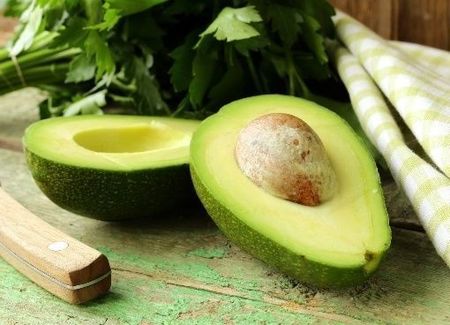Wellbeing Hub
Check out our Wellbeing Hub with health and fitness tips to make the most of your sober month!
A Simplified Guide to a Balanced Diet
By Warren Maginn on
With health as the new currency, having a balanced diet plays an integral role in every path to wellness. What a balanced diet means, though, is open for interpretation. Clinical Nutritionist, Warren Maginn, shares his simplified guide to a balanced diet.
A balanced diet should contain a mix of vegetables, protein, carbohydrates and foods rich in omega-3s. Proportion is key to getting the ‘balance’ right.
Here are a few things to keep in mind when meal planning.
 Colour Your Dinner Plate
Colour Your Dinner Plate
Regardless of your fitness/weight loss goals, every diet should have a sufficient amount of vegetables. For the average adult, 5 serves of vegetables is the recommended amount. You can improve the nutritional value of your vegetables by steaming your vegetables. Each serve should be the size of your fist.
Fish for Your Omega-3
Our body relies on the foods we eat for omega-3s, as they do not naturally occur in the body. As such it is essential to eat a diet rich in omega-3s. Opt for foods that are rich in essential fatty acids (EFAs), which help keep cells healthy by transporting nutrients in and wastes out. Omegas in skin cells are important for helping to retain moisture, promoting cell turnover, distributing melanin evenly, and helping to reduce free radicals that can cause damage and ageing effects. Omega-3s have numerous additional health benefits ranging from supporting heart and brain health to promoting optimal metabolism and immunity. It’s recommended we have three serves of oily, cold-water fish such as salmon, tuna or mackerel every week, but if this is a challenge, add some flax seeds or chia seeds to your diet, or go for a high-quality, scientifically proven omega-3 fish oil supplement to support inner and outer health.
A Fruitful Diet
Although fruit contains essential vitamins and minerals, your body doesn’t require more than 2 serves a day due to the high sugar content. Opting for fruits that are low glycemic index (GI) will allow you to have more variety whilst still keeping within the boundaries of the adequate amount. A bowl of cherries or a few slices of grapefruit are a great snack.
Don’t Ditch the Carbs
Don’t be swayed by the idea that in order to maintain a healthy diet you must cut out carbs. Carbohydrates with low GI such as whole grains and quinoa are slow in releasing energy whereas “white” carbohydrates could cause a spike in your blood sugar levels leaving you feeling hungrier sooner rather than later. Opt for carbs in the morning rather than later in the evening as your body does not produce enough energy to burn them off.
Proteins That Pack a Punch
Protein is the building block of every healthy diet and can be sourced from animals, lentils, beans, tofu and dairy. Grains such as brown rice are a good source of protein and contain essential amino acids, which aid in muscle repair. It is also low GI meaning you stay full for longer. When considering meat as a source of protein, avoid processed meats, which are full of nasty preservatives. You should opt to buy organic where possible.
Now’s the time! Go Sober this October
You may also like

What Your Body Does After One Month Off Alcohol
By Chloe Mcleod on
We all love to indulge in alcohol every now and then, but a night out with friends brings social pressures in regards to frequent drinking. It can feel impossible to dodge having a drink when you want to be part of the group vibe - and before you know it, you’re waking up with a dry mouth and a nasty hangover again.
Go Sober is a great way to reassess your relationship with alcohol consumption and see the health benefits of taking a month off. If you’re signing up to raise money, you’ll also be helping people with cancer.
Here are a few ways the human body can benefit from abstaining from alcohol for a whole month.
.jpg)
#1 Improvements to mental health
Alcohol may seem like a mood elevator when you’re dancing and having a great time with your...

Eat well to make the most of your Go Sober
By Anne Finch on
Taking a break from booze is absolutely one of the best things you can do for your health. Not only are you giving your liver (and other organs!) a break, but you can expect these benefits:
- Better sleep – alcohol might help us fall asleep, but it leads to poorer quality sleep
- Less bar snacks – drinking stirs hunger, and can also lead to sub-optimal food choices (I’m looking at you late-night fried chicken)
- Less hangover remedies – greasy fry-ups, sugary drinks and fast food are pretty common on Sunday morning, meaning the effects of your weekend drag on
- More movement – not being glued to the couch recovering means more opportunities to get out and about
If you’re looking for even more ways to treat your body right, we’ve got...

Nutritious Breakfast Options
By Rosie Mansfield on
As Go Sober kicks off, now is the perfect opportunity to replenish your body and reap the benefits of being hangover-free. These healthy breakfast options are a tasty and nutritious alternative to the traditional fry-up and will keep you energised for an active weekend.
Poached Eggs & Avocado
Poaching is the healthiest way to cook eggs, which contain high quality protein to help keep you fuller for longer. Avocados are loaded with heart-healthy fatty acids, and can even help lower cholesterol levels.
Oats & Banana
Bananas are a time-saving breakie option which will give you a boost of energy due to the high levels of potassium levels. Use it as a topping for wholegrain oats packed full of b-vitamins and you’ll instantly feel...


